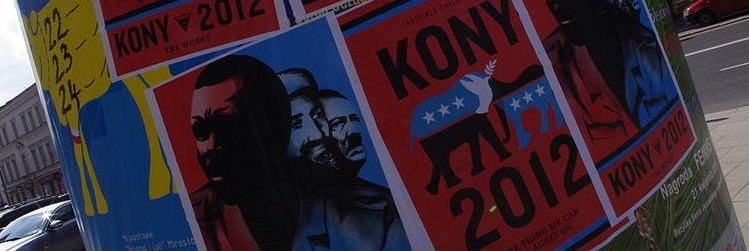In 2012, the charity Invisible Children released an online documentary, titled Kony 2012, aimed at aiding in the capture of Ugandan Christian militant rebel group leader Joseph Kony. The short documentary, which asserted that Kony was responsible for enslaving thousands of children as soldiers in the Lord’s Resistance Army, became one of the earliest and most widely watched viral videos on the internet. At the time, a poll showed that more than half of young adults heard about the video in the days following its release.
Ten years later, only 10% of Americans say they remember a lot about Kony 2012, while 25% say they remember a little and 66% say they remember nothing at all. Americans between the ages of 18 and 44, who would’ve been between 8 and 34 at the time of the video’s release, are more likely than older Americans to have strong memories of the video.
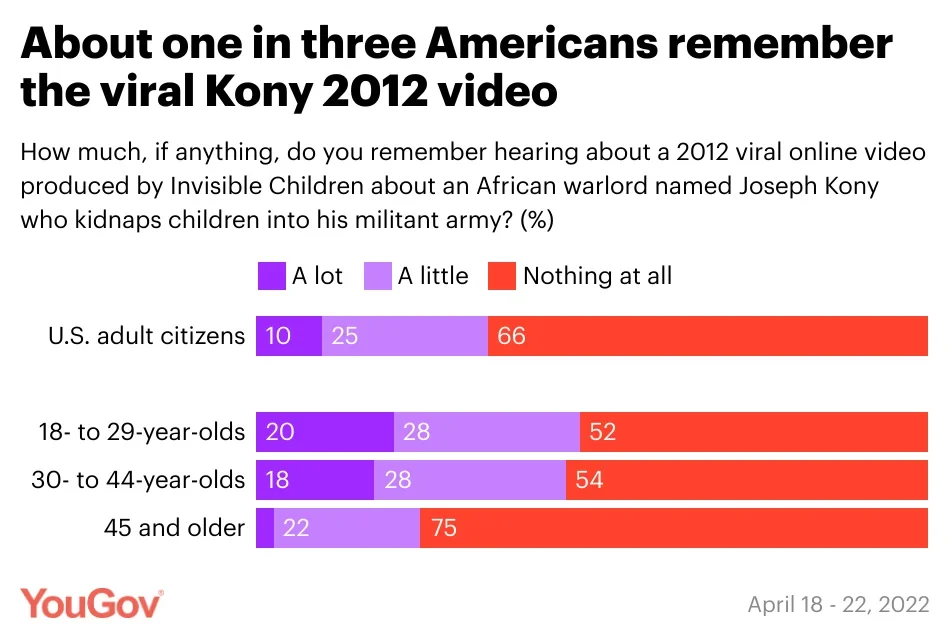
Among those who remember Kony 2012, 37% say they watched all or part of the video, while 36% say they only watched or read news stories about it. Over half (53%) of Americans between the ages of 30 and 44 who remember Kony 2012 say they watched at least some of the video, while a smaller share from other age groups said the same.
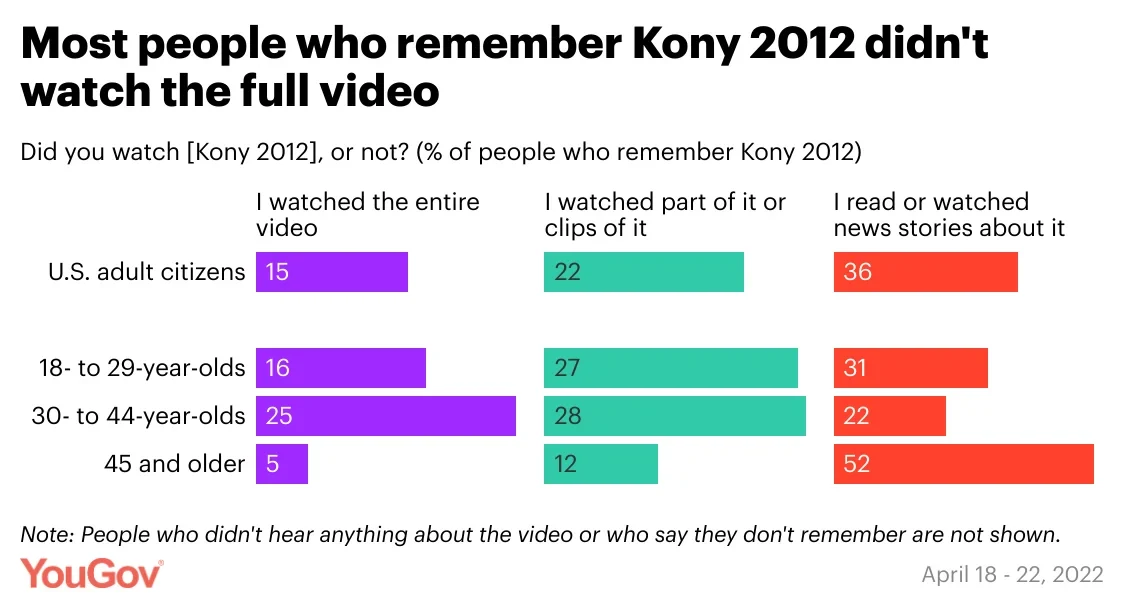
Most people who remember Kony 2012 say they didn’t donate to the cause, though 12% say they did, including 23% of Americans ages 30 to 44.
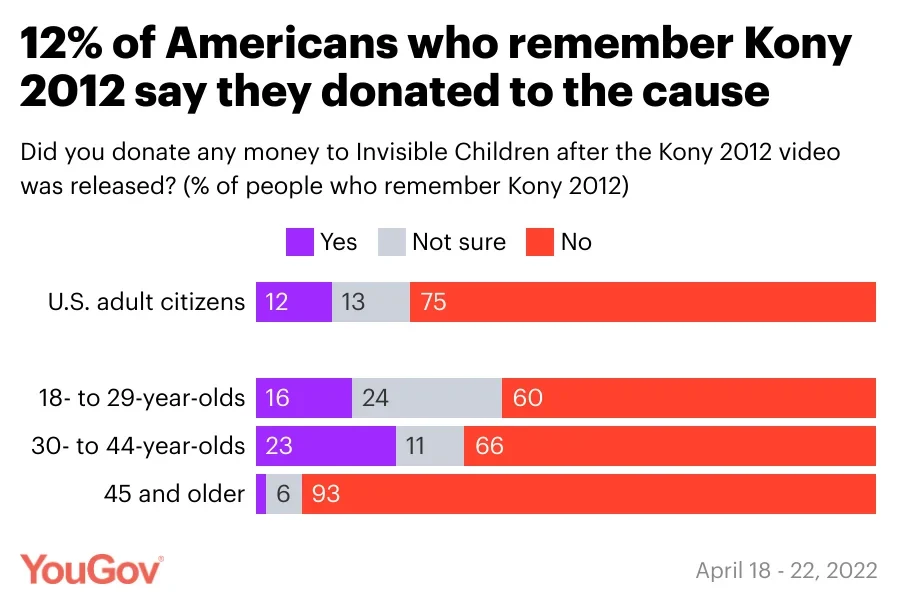
Among Americans who are familiar with Kony 2012, only one-quarter (24%) say the video was helpful in solving the problem it highlighted, while 32% say it wasn’t helpful. A large share – 44% – aren’t sure whether it was helpful. People between the ages of 30 and 44 with a memory of the video are most likely to say it was helpful (35%), compared to 18- to 29-year-olds (25%) and people 45 and older (16%).
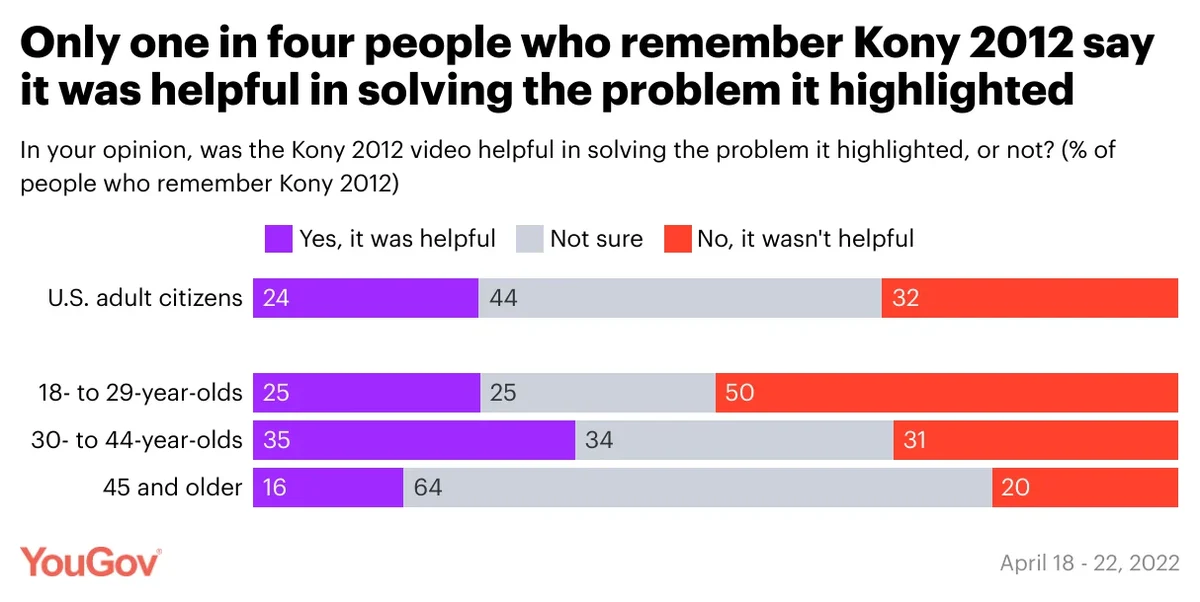
Despite the short film’s success at raising awareness of Kony and funds intended to aid in his capture, Joseph Kony remains at large (though unconfirmed reports have suggested he died from COVID-19). Yet a majority (59%) of Americans familiar with Kony 2012 aren’t sure whether he was ever captured; 13% inaccurately say he was and 28% say he wasn’t. People between the ages of 30 and 44, who were also most likely to say they donated to the cause and thought it was helpful, are most likely to inaccurately say he was eventually captured (25% say he was).
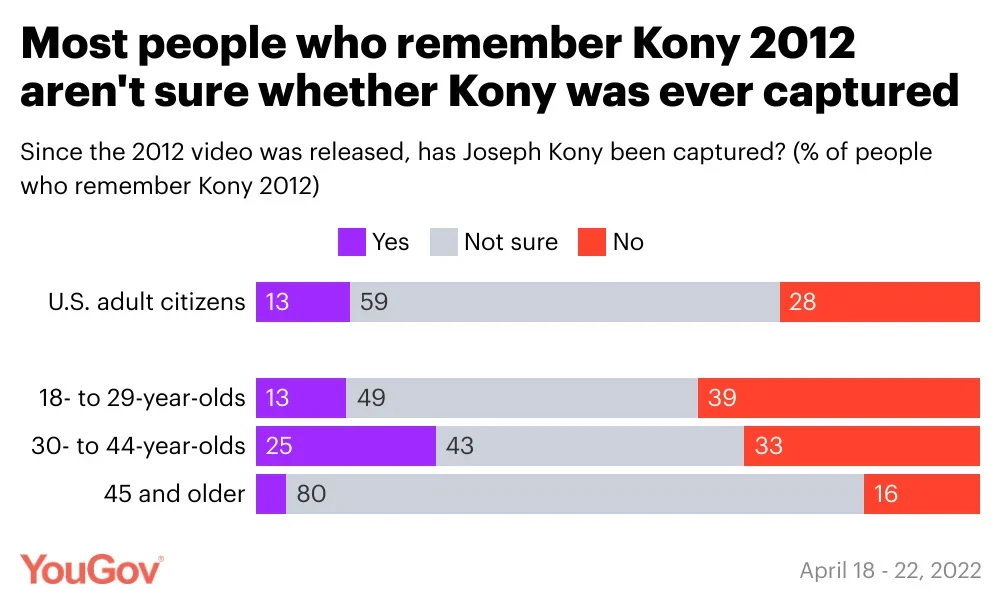
We also asked Americans broader questions about the effectiveness of various forms of online and offline activism. The actions polled that are perceived as having the largest impact are the two in-person actions: attending a protest, and talking to family or friends about the cause. Fewer say that signing a petition and sharing a social media post about a cause are impactful, though still more than 70% of Americans say each action has at least a little impact. Among the actions polled, the action deemed effective by the fewest Americans is changing one’s profile picture in support of a cause. Liking a social media post about a cause and sharing hashtags associated with the cause are considered to have impact by slightly more people than changing a profile picture is.
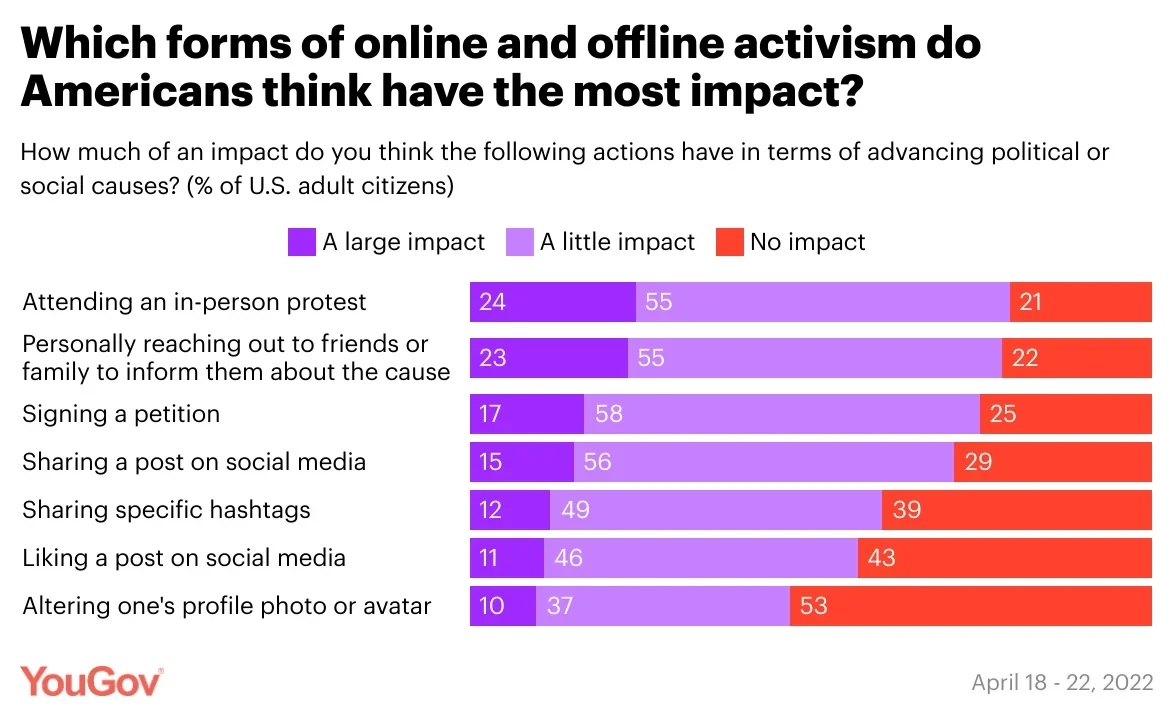
— Carl Bialik contributed to this article
This poll was conducted on April 18 - 22, 2022, among 1,000 U.S. adult citizens. Explore more on the methodology and data for this poll.
Image: Mateusz Opasiński, distributed under a CC-BY 3.0 license.
